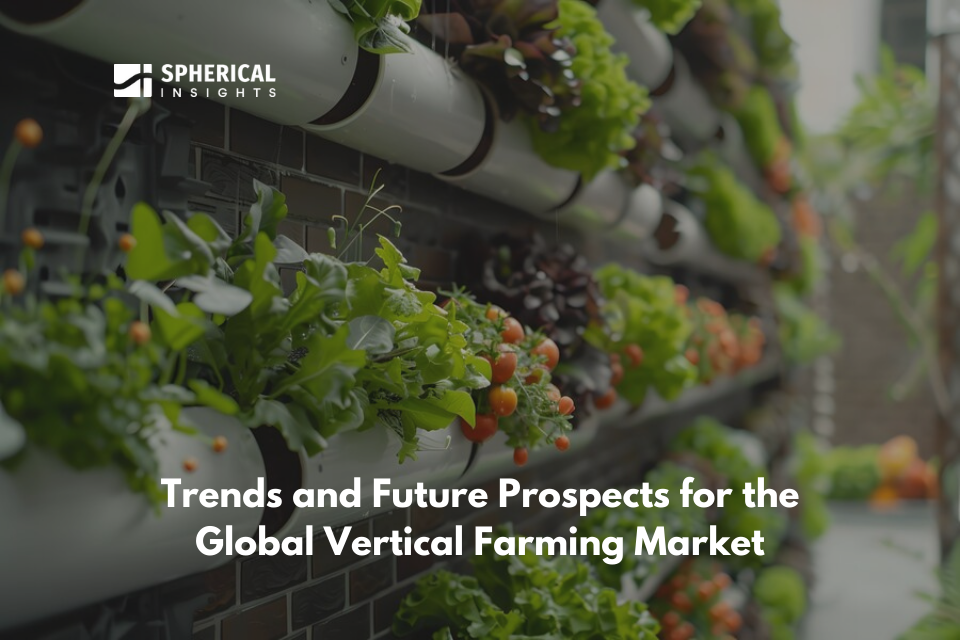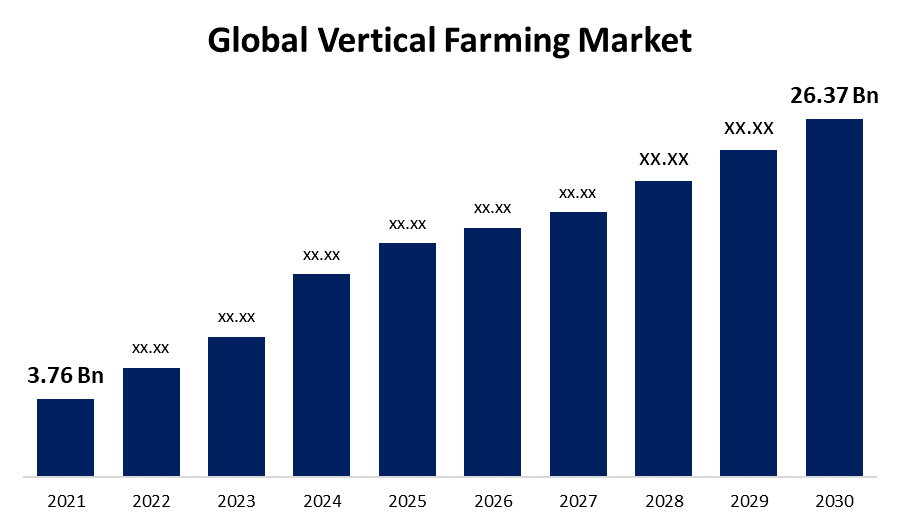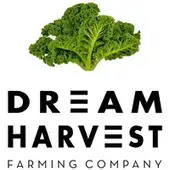Trends and Future Prospects for the Global Vertical Farming Market
RELEASE DATE: Jul 2024 Author: Spherical Insights Request Free Sample
Overview
Vertical farming is the process of growing or cultivating crops especially vegetables and some particular crops in vertically stacked layers. Every rack has an area above it where plants can grow. Due to these high-tech farms may be situated in warehouses and other industrial buildings instead of on farmland, and they significantly reduce the amount of space required to raise food. The global vertical farming market is predicted to reach USD 26.37 Billion by 2030, at a CAGR of 24.42% during the estimated period 2022 to 2030. Urbanization, deforestation, and climate change are the main causes of the declining amount of land available for agriculture. While traditional farming methods are challenged by this trend, vertical farming provides an alternative by making better use of available space for food production.
Advancements in Vertical Farming
Technological innovations in vertical farming automation, including as robotic harvesting and vertical conveyor systems, increase overall operational efficiency and profitability by streamlining operations and lowering labor expenses. The global market comprises some of the leading companies in the vertical farming industry, such as Freight Farms Group, Sky Greens, Spread, Plenty, Valoya, and Osram. For instance, in October 2023, Colruyt Group and Mecha Tronix, a European manufacturer of LED grow lights, jointly unveiled the CoolGrow VF light. Vertical farming installation can use up to 38% less energy than conventional setups due to the new CoolGrow VF light.
Government Initiatives and Regional Market Expansion
The USDA's Farm Service Agency (FSA) has local offices across the country to help farmers receive assistance. The Farm Service Agency provides farmers with favorable federal loans. If companies beginning a sustainable endeavor like a vertical farm, check out the Environmental Working Group's conservation database, which records federal funding for greener farming practices in the area. A vertical garden scheme has been introduced in Kerala, India as part of the Mission for Integrated Development of Horticulture (MIDH), through which the recipient will receive a 75% subsidy on the entire cost of setting up a vertical garden, with the remaining 25% to be covered by the recipient.
Insights and Projections: Global Vertical Farming Market Analysis
The report provides a summary of the global top trends and future prospects for the global vertical farming market based on historical data sets (current trends, industry statistics, and emerging trends shaping the vertical farming industry’s future, preliminary estimates from 2020-2021, 2022, and 2023), as well as projections for the global vertical farming trends and future prospects for global regions in 2024 and 2025. This data-driven research offers users an industry-wide view of emerging technologies and innovative insights to help them make critical business decisions.

Get more details on this report - Request Free Sample PDF
Growth Factors and Emerging Trends in the Vertical Farming Industry
- Minimized agricultural pollution with the use of vertical farming
Reducing the agricultural industry's negative environmental effects largely depends on vertical farming. It lowers the amount of water needed to grow more crops. It also reduces the need for transportation and eliminates the chemicals and pesticides required to cultivate crops. Vertical farming operates entirely organically throughout. It provides natural alternatives, such as using fish to generate nutrient-rich waste for plants in the aquaponics growth mechanism of vertical farming, and drastically reduces the usage of chemicals. Furthermore, as vertical farming is done in a controlled setting, pesticide use is avoided because crops resist harmful pests. Vertical farming provides its customers with high-quality, nutritious produce since it avoids the use of pesticides or other harmful practices including burning fields, grass, or garbage.
- Elevated nutritious values and modifications in climate to boost industry growth.
The increased nutritional value of crops grown in vertical systems and the changing weather patterns that impact conventional farming methods are the two main drivers of the expanding demand for vertical farming. It is a cutting-edge agricultural technique that involves growing crops in carefully regulated indoor spaces in vertically stacked layers while utilizing cutting-edge hydroponics and aeroponics to maximize crop growth and resource efficiency.
Opportunities and Future Prospects in the Vertical Farming Industry
- Potential market opportunities in Asia Pacific and the Middle East
Around 75% of the vegetables grown worldwide are consumed by individuals in the Asia-Pacific region, according to the Ministry of Agriculture, Forests, and Fisheries (MAFF). The majority of plant manufacturers in Asia are located in China, Hong Kong, Singapore, and Japan. Between 2023 and 2028, factors including the ongoing urban population growth, growing disposable income, and growing middle class population are anticipated to fuel demand for food and agricultural commodities and resources. Vertical farming is becoming more and more popular in many APAC countries due to its ability to produce more in a less area. Another market with significant growth potential for vertical farming is the Middle East. Middle Eastern countries experience scorching weather for about eight months of the year, making this a far less ideal time of year for crop production.
List of Key Companies in the Vertical Farming Industry
- AeroFarms
- BrightFarms
- CubicFarm Systems
- Dream Harvest Farms
- Eden Green Technology
- sky Greens
- Spread
- Heliospectra
- Urban Crop Solutions
- iFarm
Major 5 Players in the Vertical Farming Industry
- AeroFarms

Headquarters: Danville, Virginia
AeroFarms is a recognized B Corporation that grows a variety of goods with greater taste, nutrition, and quality while maintaining food safety and traceability. It does this by utilizing the most recent developments in artificial intelligence, plant biology, and indoor vertical farming. AeroFarms developed a proprietary agricultural infrastructure to cultivate a broad range of goods with the most advanced levels of food safety and traceability in our sector, offering higher flavor, quality, and nutrition.
- BrightFarms

Headquarters: Irvington, New York, United States
BrightFarms is an indoor farming enterprise that focuses on offering packaged salads that are locally farmed. Customers can enjoy a non-GMO salad because it produces its salads in an indoor, regulated environment, without the use of pesticides, and with tenderness. By running hydroponic greenhouse farms in the communities it serves, BrightFarms is able to cut expenses, distance, and time out of the food supply chain. As of October 21, 2020, BrightFarms' post-money valuation ranges from $500M to $1B, per PrivCo. To get the precise valuation and look for businesses with comparable valuations, sign up for a free trial.
- CubicFarm

Headquarters: Langley, British Columbia, Canada
Agritech startup CubicFarm Systems automates the regulated environment needed to cultivate fresh food and wholesome animal feed. Through local growing opportunities and the provision of fresh, safe, sustainable, and nutritious products with consistent color, size, flavor, and nutrition that last longer, CubicFarms helps its clients grow. Funding for CubicFarm Systems comes from five sources.
- Dream Harvest Farming

Headquarters: Houston, Texas, United States
Dream Harvest Farming Company grows fresh food locally by utilizing vertical farming techniques that are both environmentally friendly and highly efficient. Its environmentally friendly indoor farm requires only 5% of the water used by conventional farms, far less land, and no pesticides at all. The Dream Harvest Farming Company has raised $50.7 million in fundraising throughout two rounds. On December 7, 2021, a Venture - Series Unknown round was used to raise their most recent funding.
- Eden Green Technologies

Headquarters: Cleburne, Texas, United States
Eden Green Technologies is a privately held corporation headquartered in Dallas-Fort Worth to provides everyone with access to locally farmed and ultra-fresh vegetables. A decentralized network of greenhouses that enables year-round access to locally grown, safe produce for retail, white-label, and private-label solutions is what Eden Green Technology offers growers, retailers, and suppliers as an alternative to traditional agriculture. Rapid building and development are made possible by the company's patented microclimate conditions, hydroponic vine systems, and state-of-the-art lighting solutions, which increase access and profitability. Everyone can have access to fresher, safer, and healthier food due to regional and national distribution networks. Up to 10% of every harvest is set aside by Eden Green for charitable giving.
Get more details on this report - Request Free Sample PDF
Recent Development
- In July 2024, using UCS’s indoor farming technology, a German aquaponic technology business and the Belgian vertical farm supplier Urban Crop Solutions (UCS) successfully cultivated saltwater plants. Aixponic reduced the amount of freshwater used for irrigation by partially utilizing saltwater sources, which was important during dry spells.
- In May 2024, the board of Heliospectra AB (publ) ("Heliospectra" or the "Company") has chosen to prepare and have the auditor evaluate the company's control balance sheet as of March 31, 2024, as previously indicated, out of caution. The auditor has now created and examined the control balance sheet, which demonstrates that the share capital of the company is fully intact.
- In March 2024, the next-generation indoor vertical farming startup, Eden Green Technology (Eden Green), has introduced its flagship herb program, becoming the first to cultivate, package, and distribute an entire herb suite from a single location. The program increases access to fresh, reasonably priced herbs, improves logistics, and lessens environmental impact by utilizing Eden Green's patented microclimate technology and networked distribution strategy.
- In November 2022, through container farming, Freight Farms, Inc. was able to obtain USD 1.75 million in Series B3 funding to enhance the food system's accessibility and sustainability. With the help of this money, the company will be able to further its goal of enabling anybody to grow food anywhere by utilizing its product line of flexible, modular, and user-friendly container farm automation software.
About the Spherical Insights & Consulting
Spherical Insights & Consulting is a market research and consulting firm which provides actionable market research study, quantitative forecasting and trends analysis provides forward-looking insight especially designed for decision makers and aids ROI.
Which is catering to different industry such as financial sectors, industrial sectors, government organizations, universities, non-profits and corporations. The company's mission is to work with businesses to achieve business objectives and maintain strategic improvements.
CONTACT US:
For More Information on Your Target Market, Please Contact Us Below:
Phone: +1 303 800 4326 (the U.S.)
Phone: +91 90289 24100 (APAC)
Email: inquiry@sphericalinsights.com, sales@sphericalinsights.com
Contact Us: https://www.sphericalinsights.com/contact-us